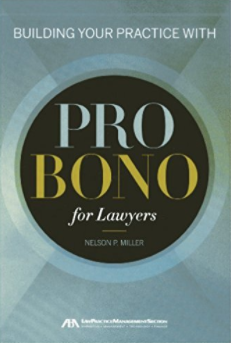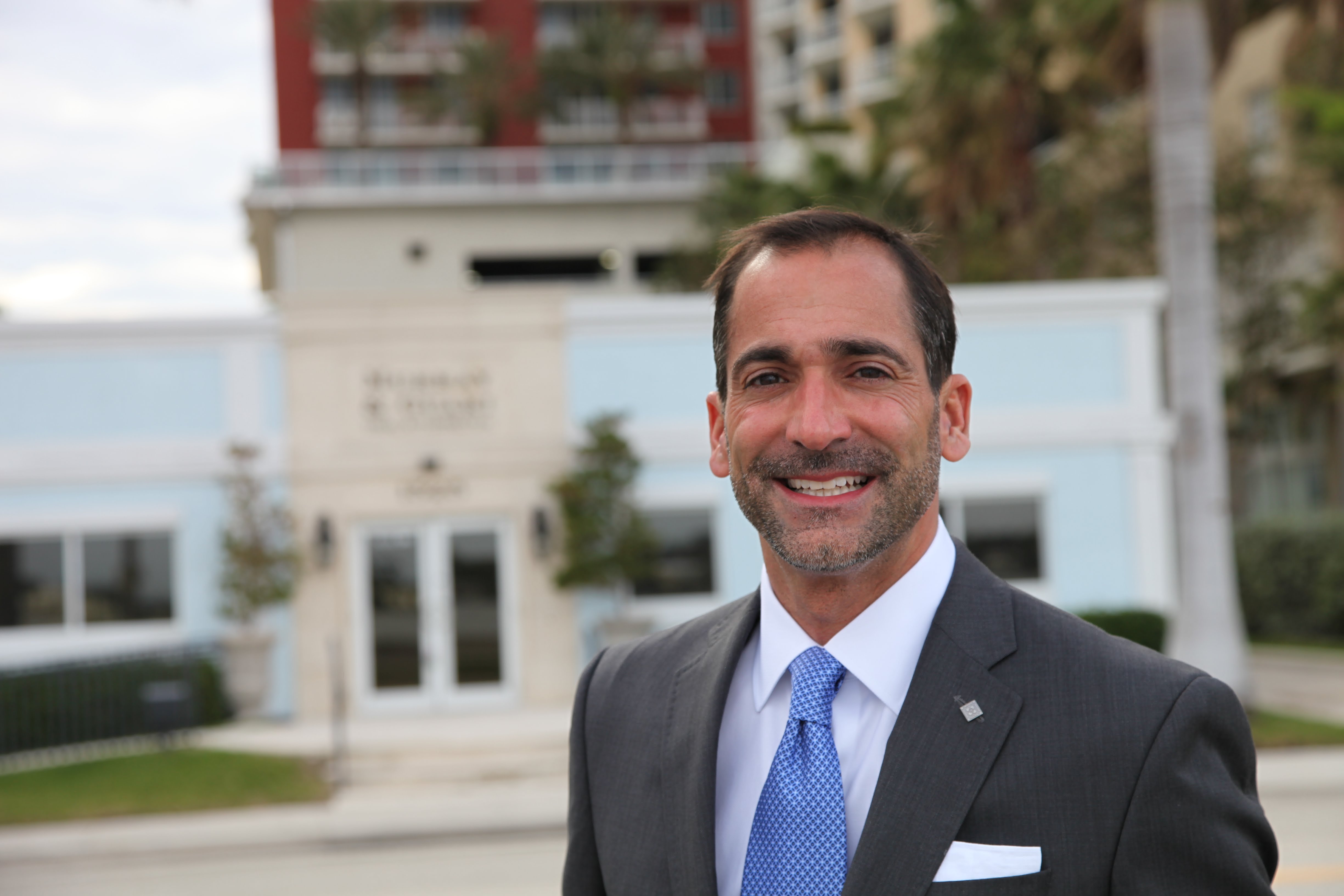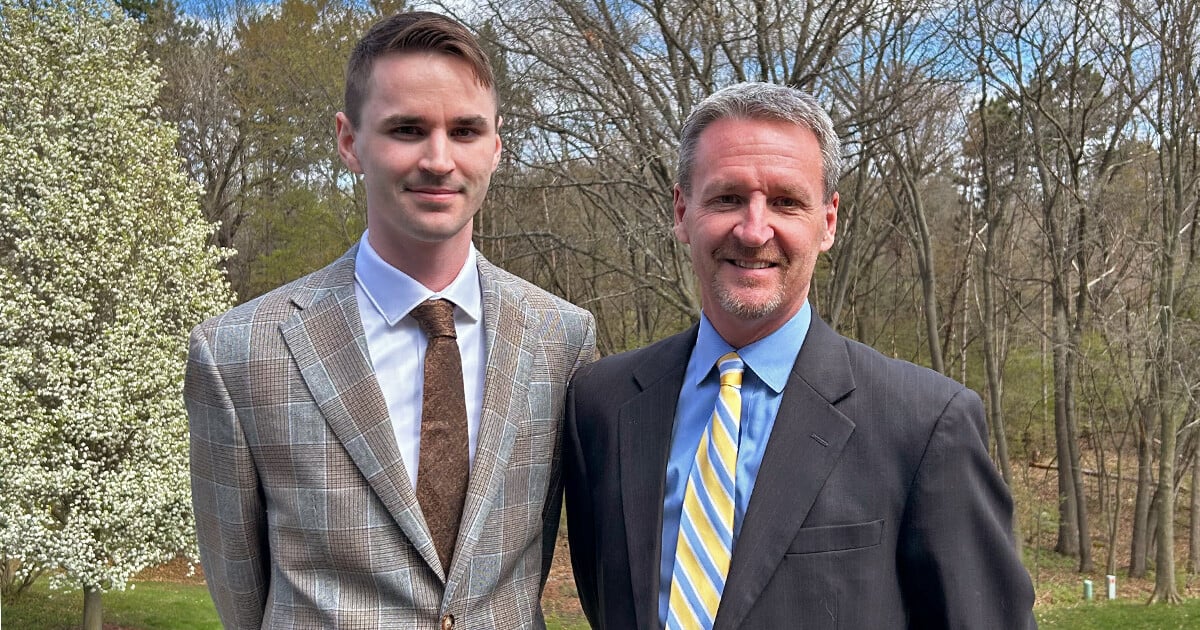
Lawyers doing pro bono service can be good for a law firm’s bottom line, even while pro bono is good for everyone else.
That premise was the subject of a presentation that WMU-Cooley Associate Dean Nelson Miller recently gave to leaders of the Hillsborough County (Florida) bench and bar in Tampa at a bar association inaugural annual pro-bono luncheon. It is also the subject of Dean Miller’s ABA Law Practice Management Section book “Building Your Practice with Pro Bono,” copies of which the event organizers gave to attending lawyers and judges.
The book addresses ten under-served populations include returning service members, released prisoners, single parents, children, and then the homeless, foreclosed, immigrant, and disabled, examining how pro bono lawyers can meet their legal needs. Yet the under-served-population problem is not just a heart problem but also a packaging, pricing, and delivery problem, and a skill, access, and network problem, as Dean Miller addressed in his recent talk.
 Managing partners and other attendees at the luncheon event well knew that law firms need revenue. Firms can’t just give everything away. Yet prices constrain clients. Clients need to see the value proposition, but some clients may also need simpler services within their price reach. Pro bono helps lawyers conceive of new law services and then find ways to price and deliver them, making those services affordable and accessible.
Managing partners and other attendees at the luncheon event well knew that law firms need revenue. Firms can’t just give everything away. Yet prices constrain clients. Clients need to see the value proposition, but some clients may also need simpler services within their price reach. Pro bono helps lawyers conceive of new law services and then find ways to price and deliver them, making those services affordable and accessible.
Pro bono also helps lawyers refine old and develop new skills. Those skills include cross-cultural skills. Lawyers can hone listening and communication-support skills, not necessarily learning new languages but at least learning to work through interpreters and with clients whose language skills may not reflect experience consulting with professionals.
Lawyers can also improve their skills at helping clients articulate achievable legal goals within complex mixes of financial, social, medical, and other issues. Pro bono helps new lawyers learn how to help clients set reasonable objectives, develop plans to accomplish those objectives, and evaluate plans as the clients implement them. When a lawyer involves paralegal and other staff in pro bono work, the work improves the skills of those staff members, too.
Pro bono also helps lawyers expand their networks of other professionals like immigration officials, tax agents, caseworkers, registers of deeds, Friend of the Court investigators, social and foster-care workers, receivers, and trustees. Clients depend not just on their lawyer but also on their lawyer’s ability to work well with these and other professionals. Pro bono also expands a lawyer’s network among other lawyers, which can be just important to clients. And judges who also spoke at the event confirmed that pro bono raises the reputation of lawyers before the bench.
Dean Miller ended the talk with a story reminder that lawyers have only modest skills. They can’t suture a wound like a physician can, design a bridge like an engineer, or fix a broken-down car like a mechanic. Yet with those modest skills, lawyers can help feed thousands, if they simply choose to take their modest skills where people most need them. Doing pro bono is not a loss proposition, but a winning one, both for the bottom line and for treasure stored only in heaven.


